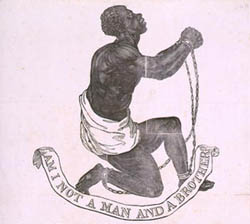On Mutuality in Aid
Bill Easterly recently wrote a brief article on the importance of attending to issues of complexity and spontaneous order in debates about government foreign aid
transfers (and the small army of planners, developers, charity-workers, et al. that come along with those grants). It’s interesting enough, but I’m mentioning it because there are a couple comments from David Ellerman beneath the post, which are really worth noticing. First:
One could go on but I might try to cut to the chase and indicate why theories that may give some insights when applied to physical systems (e.g.,
self-organizingsand piles) and insect societies may rather "miss the boat" when applied to human affairs.The mistake in applying complexity theory to human relationships such as the education, management, development aid, and helping in general is that the basic problem is NOT that the human
systemsare complex,messy,nonlinear, etc. The basic problem, across the whole range of the human helping relationships (like aid) between what might be called thehelperand thedoer,is that success lies in achieving more autonomy on the part of the doers, and autonomy is precisely the sort of thing that cannot be externally supplied or provided by the would-be helpers. This is the fundamental conundrum of all human helping relations, and it is the basic reason, not complexity, why engineering approaches and the like don't work. Thus the application of complexity theory to development aid–as if the basic problem with aid was the complexity of the systems–isunhelpfulfrom the get go.
Of course, human social life is complex, messy, nonlinear, and whatever else, and if you aim to study it, or to do something on the basis of your study, then you had better keep that in mind. But what you had best keep in mind, when it comes to the doing something
part, is not so much some theoretical insight about top-down views of patterns of human activity, which you could have observed from Mars, say, through a very large telescope; it’s something about the human relationships that you are entering into — how you think about and how you treat the people you are supposedly coming along to help out with all their problems. (And just who are you? What are the problems you’re trying to solve, and whose are they, really?) For those who are interested in such things, this is of course the issue at stake in the Anarchist analysis of the difference between mutual aid
and charity.
The second worth noticing are the comments on how this kind of discourse gets packaged, and how it spreads. I think the bits about the role of management theory as a vector for the fads to spread throughout institutionalized aid economics are especially insightful, and important:
Sticking to applications of complexity theory in the social or human sciences (the notion of a
spontaneous orderis an older and more profound topic), one should consult Ben Ramalingam's ODI paper at: http://www.odi.org.uk/resources/download/583.pdf . Ben and colleagues make a sustained attempt to usefully apply complexity theory to the problems of development aid–but I fear with little success. One can always reformulate some bits of old wisdom (openness, restraint, humbleness, courage) in terms of the jargon of some new faddish theory, but that is hardly a distinctive contribution of the theory. As Ben notes, there has for some time been a craze in organizational theory and business management to apply the buzz and jargon of complexity theory but with little if any results that are new or distinctive. Interconnectedness! Nonlinearity! Sensitivity to initial conditions! Unintended consequences! Adaptive agents! Wow!...
And:
Ben, I do appreciate that your uses of complexity theory have been guarded and (as one can see from my book) I am certainly a great fan of eclecticism and interdisciplinary thinking. If anyone comes to some insights through complexity theory (as I also have, e.g., the series-parallel interplay between "exploitation versus exploration"), then that is great–even though other routes may also have been available. … My problems lie in how seemingly every advance in the natural sciences is turned into a fad, usually first in management theory, which is then used to avoid looking at deeper persistent sources of dysfunctionality. In business enterprises, management sits astride huge organizations based on the employment relation, but then constantly tries to escape the resulting dysfunctionality by surfing the latest fads popularized from the natural sciences. Similarly, we see the large development aid bureaucracies that are deeply failing for structural reasons but constantly grasping for the latest fad-theories to explain
why it wasn't working as expectedand to provide rhetorical cover for theirnew waysof doing development assistance.In short, my message is: eclectic interdisciplinary approaches to development, Yes; new popsci cover stories for the failures of the development aid bureaucracies, No.
(Via Will Wilkinson @ The Fly Bottle 2011-01-20.)
See also:
- Gertrude B. Kelly, in The Alarm (November 19, 1887): Bourgeois Charity, now recently put online thanks to the Fair Use Repository.
- GT 2009-10-13: On Big Charity
- GT 2008-05-29: Dump the rentiers off your back






